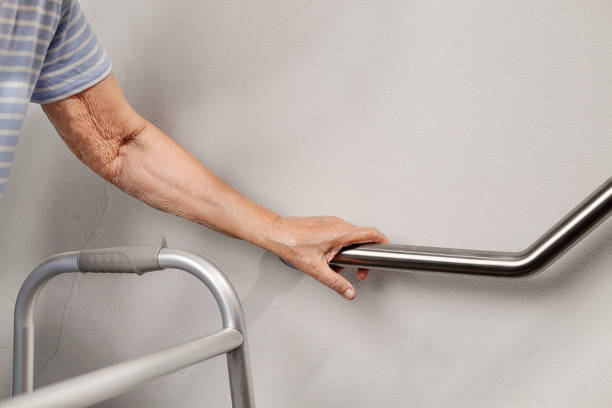Empowering Individuals with Dementia: 12 Strategies to Enhance Cognitive Well-being and Quality of Life

Aging is a natural part of life, and it often comes with unique challenges. One of the most daunting challenges is dementia, a progressive and irreversible condition that affects cognitive function. While we can't cure dementia, there are strategies and interventions that can help slow down cognitive decline and improve the overall quality of life for individuals living with this condition. In this blog post, we'll explore some tips and approaches to empower individuals with dementia and support their well-being.
Early Diagnosis and Treatment

One of the crucial steps in managing dementia is early diagnosis and treatment. Early diagnosis allows for timely interventions and treatments that can help manage symptoms and slow down the progression of certain types of dementia, such as Alzheimer's disease. Medications and non-pharmacological treatments can be more effective when started early. If you suspect dementia in yourself or a loved one, seek medical evaluation and guidance promptly.
Medication Management

Medications can help manage the symptoms of dementia, particularly in the early stages. However, it's essential to work closely with healthcare professionals to find the right medication and dosage for each individual. The right medication can make a significant difference in managing symptoms and improving the individual's quality of life.
Cognitive Stimulation

Engaging in activities that challenge the brain is essential. Puzzles, games, and memory exercises can stimulate cognitive function. These activities help maintain cognitive function and slow cognitive decline. Providing opportunities for mental engagement is a key part of enhancing the well-being of individuals with dementia.
Physical Exercise

Regular physical activity has a positive impact on brain health. Exercise improves blood flow to the brain, promotes the growth of new brain cells, and can help with mood and overall well-being. Simple activities like walking, stretching, or chair exercises can be beneficial for individuals with dementia. Consult with a healthcare provider for guidance on appropriate exercises.
Healthy Diet

A balanced diet plays a vital role in supporting brain health. A diet rich in fruits, vegetables, and omega-3 fatty acids can be particularly beneficial. Antioxidants and anti-inflammatory foods may also support cognitive function. Maintaining good nutrition can contribute to overall well-being.
Social Engagement

Staying socially active is crucial for emotional well-being. Interacting with family and friends, participating in social activities, and joining support groups can help reduce feelings of isolation and depression, which often accompany dementia. Social engagement provides a sense of belonging and connection.
Sleep Management

Ensuring a regular sleep schedule and addressing sleep problems is essential. Poor sleep can exacerbate cognitive symptoms. A consistent sleep routine and creating a calming bedtime environment can help individuals with dementia get the rest they need.
Stress Reduction

Chronic stress can negatively impact cognitive function. Stress-reduction techniques like mindfulness, meditation, and relaxation exercises can be beneficial. These practices can help manage anxiety and improve overall well-being.
Safety Measures

Implementing safety measures to prevent accidents and falls is crucial for individuals with dementia, as injuries can accelerate cognitive decline. Here are a few examples of how you can Remove hazards and create a safe environment to reduce your loved one's risk of accidents.
Remove tripping hazards: Clear walkways of loose rugs, clutter, or extension cords that could cause a person with dementia to trip and fall.
Install handrails and grab bars: Adding handrails in hallways and grab bars in bathrooms can provide much-needed support for balance and stability, reducing the risk of falls.
Proper lighting: Adequate lighting in all areas, especially at night, can help individuals with dementia navigate safely and prevent accidental falls in the dark.
Secure furniture and fixtures: Ensure that heavy furniture and fixtures are securely anchored to prevent accidental tipping and injuries.
Childproofing: Use childproof locks on cabinets containing hazardous items like cleaning supplies, medications, or sharp objects to prevent accidental ingestion or injuries.
Monitor water temperature: Set the water heater at a safe temperature to prevent burns from hot water.
Supervision: In some cases, constant supervision may be necessary to ensure the safety of individuals with advanced dementia who are prone to wandering or engaging in risky behaviours.
Safety alarms: Install alarms or sensors to alert caregivers when a person with dementia tries to exit the home or enters restricted areas.
Simplify the environment: Minimize distractions and clutter to reduce confusion and anxiety, which can contribute to accidents.
By implementing these safety measures, you can create a secure environment that reduces the risk of accidents and falls, ultimately promoting the well-being and cognitive health of individuals living with dementia.
Structured Routine

A structured daily routine can help individuals with dementia feel more secure and less anxious. Consistency in daily activities provides a sense of normalcy and reduces confusion. Here are a few examples of how a well-planned routine can be comforting and supportive
Daily Living Activities:
Routine can be established for everyday activities such as meal times, bathing, and recreational activities. For instance, having breakfast at the same time each morning, followed by a daily walk in the garden or engaging in a favorite hobby in the afternoon, can create a predictable and comforting rhythm for individuals with dementia. This predictability minimizes confusion and increases their overall sense of well-being.
Social Engagement and Familiar Faces:
Structured routines can include regular social interactions with family members, caregivers, or support groups. Regular visits from loved ones or participation in group activities at a consistent time and place can help individuals with dementia feel more secure, as they can anticipate these interactions. Familiar faces and routines can be comforting and reassuring, even when memory and cognitive abilities are compromised.
Assistive Technologies

There are various assistive technologies available that can support individuals with dementia in their daily lives. Reminders, safety alarms, tracking devices, and apps can help individuals with dementia manage their daily activities and stay safe. Here is a list of technologies that can help to safeguard the people we support, increasing their independence and dignity:
Reminders and Memory Aids: These can include digital calendars, medication reminders, and voice-activated devices like Amazon Echo or Google Home to help individuals remember appointments, tasks, and important information.
Safety Alarms: These can be door alarms or motion sensors that alert caregivers or family members if the person with dementia tries to leave the house or enters a potentially dangerous area.
GPS Tracking Devices: Wearable or attachable GPS devices can help locate a person with dementia if they become disoriented or wander, providing peace of mind for caregivers.
Communication Aids: Speech-generating devices or apps can assist those with language difficulties or aphasia, allowing them to express themselves and communicate more effectively.
Video Monitoring Systems: These allow caregivers to remotely check on the well-being of the person with dementia and provide a sense of security.
Simplified Devices: Some technology companies create simplified phones, tablets, or remote controls with larger buttons and easier interfaces to reduce confusion and make technology more accessible.
Caregiver Support

Providing support to caregivers is essential. Caregivers often experience stress and burnout, which can affect the quality of care provided to individuals with dementia. Johnson Adult Foster Care can help you navigate Support groups, respite care, and training, which can help caregivers cope better and provide better care. Caregivers are critical to the well-being of individuals with dementia, and they need support as well.
While these strategies can help slow cognitive decline and improve the overall well-being of individuals with dementia, it's important to understand that dementia is a progressive condition. These approaches cannot cure or fully stop its progression. The focus should be on maintaining the best possible quality of life for the individual and providing support and care throughout their journey with dementia.
Consulting with healthcare professionals, such as neurologists and geriatric specialists, is vital for developing a personalized care plan that addresses the unique needs of each individual. By implementing these strategies and offering unwavering support, we can empower individuals with dementia and enhance their cognitive well-being and quality of life.
If you or a loved one is facing dementia, remember that you're not alone. Seek help, access resources, and embrace these strategies to provide the best possible care and support. Together, we can make a difference in the lives of those living with dementia. Call Johnson Staffing Solutions at (905) 775-4787, to get the support you need in caring for your loved one today.

Comments
Post a Comment